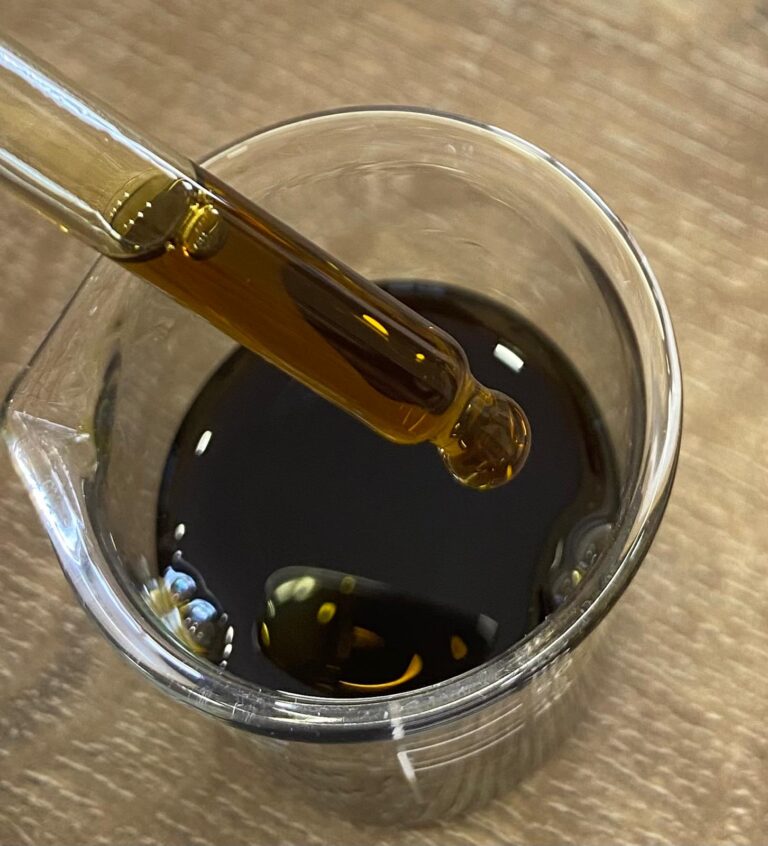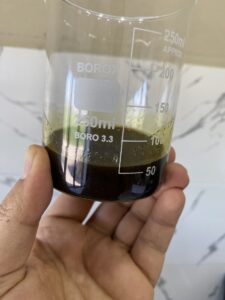Power of Thymoquinone:Exploring the Benefits of Black Cumin Oil
Black cumin oil, also known as Kalonji oil, Black Seed Oil, or Nigella sativa seed oil, derived from the seeds of Nigella sativa, has been prized for centuries in various cultures for its potent medicinal properties. At the heart of its therapeutic efficacy lies thymoquinone, a bioactive compound that has garnered significant attention from researchers and health enthusiasts alike. Let’s delve into the remarkable benefits that thymoquinone offers when found in black cumin oil.
- Anti-inflammatory Properties: Thymoquinone exhibits robust anti-inflammatory effects, making it a promising natural remedy for conditions characterized by inflammation, such as arthritis and asthma. By inhibiting inflammatory pathways in the body, it helps alleviate pain and swelling, promoting overall well-being. This makes Kalonji oil particularly beneficial for those seeking natural alternatives to manage chronic inflammation.
- Antioxidant Defense: Oxidative stress, caused by an imbalance between free radicals and antioxidants in the body, is implicated in various chronic diseases, including cancer and cardiovascular disorders. Thymoquinone acts as a potent antioxidant, scavenging free radicals and reducing cellular damage, thus safeguarding against oxidative stress-induced ailments. The antioxidant properties of black cumin oil make it a valuable addition to any wellness regimen aimed at combating oxidative damage.
- Immune System Support: A strong immune system is vital for defending the body against infections and diseases. Thymoquinone has been shown to modulate immune responses, enhancing the activity of immune cells such as T lymphocytes and natural killer cells. By bolstering immune function, it helps the body mount a more effective defense against pathogens. Incorporating Nigella sativa seed oil into your diet can provide an extra boost to your immune health.
- Neuroprotective Effects: Neurological disorders, including Alzheimer’s and Parkinson’s disease, pose significant challenges to public health worldwide. Thymoquinone exerts neuroprotective effects by reducing inflammation in the brain, inhibiting the formation of amyloid plaques, and enhancing antioxidant defenses. These mechanisms may offer potential therapeutic benefits for managing neurodegenerative conditions. Black seed oil’s neuroprotective properties are being explored for their potential to support brain health and cognitive function.
- Antimicrobial Activity: The emergence of antibiotic-resistant bacteria presents a pressing global health threat. Thymoquinone exhibits broad-spectrum antimicrobial activity against various pathogens, including bacteria, fungi, and viruses. Its ability to disrupt microbial growth and inhibit biofilm formation highlights its potential as a natural alternative to conventional antimicrobial agents. This makes Kalanji oil a versatile tool in natural medicine for maintaining microbial balance and preventing infections.
- Cardioprotective Effects: Cardiovascular diseases remain the leading cause of mortality worldwide. Thymoquinone confers cardioprotective benefits by reducing cholesterol levels, inhibiting platelet aggregation, and exerting vasodilatory effects. These actions contribute to improved cardiovascular health and may help prevent heart-related complications. The cardioprotective properties of black caraway oil make it a beneficial addition to heart-healthy diets.
- Anticancer Potential: The search for novel anticancer agents has led researchers to explore the therapeutic potential of thymoquinone in cancer management. Studies suggest that it exerts anti-proliferative, pro-apoptotic, and anti-metastatic effects on various cancer cell types, offering promise as an adjuvant therapy alongside conventional cancer treatments. Black seed oil’s anticancer properties are an exciting area of ongoing research.
Incorporating black cumin oil into your daily regimen can be a convenient way to harness the myriad health benefits of thymoquinone. Whether used topically or ingested orally, this natural elixir has the potential to enhance your overall health and well-being. Additionally, coriander and other complementary herbs can be combined with black cumin oil to enhance its therapeutic effects.
Daily Use Recommendation:
For general health and well-being, the recommended daily dosage of black cumin oil is typically between 1 to 2 teaspoons (5 to 10 ml) per day. This can be taken in divided doses, once in the morning and once in the evening. Here are some easy ways to incorporate it into your daily routine:
- Orally: Take 1 teaspoon of black cumin oil on an empty stomach in the morning. It can also be mixed with honey or added to a glass of warm water or juice.
- Topically: Apply a small amount of black cumin oil to the skin, especially on affected areas, to benefit from its anti-inflammatory and antimicrobial properties.
- In Foods: Add black cumin oil to salads, smoothies, or soups to enhance the flavor and nutritional profile of your meals.
- With Beverages: Stir black cumin oil into your morning tea or coffee for an added health boost.
Warning:
Pregnant women, breastfeeding women, and those with stomach problems are advised to consult a doctor before use.
In conclusion, thymoquinone stands as a shining star in the realm of natural medicine, with its diverse therapeutic effects and wide-ranging applications. By unlocking the power of black cumin oil, also known as Kalonji oil or black seed oil, you can embark on a journey towards optimal health and vitality, grounded in the wisdom of ancient remedies and supported by modern scientific evidence.
Disclaimer: This blog post is for informational purposes only and is not intended to substitute professional medical advice, diagnosis, or treatment. Always seek the advice of your physician or other qualified health provider with any questions you may have regarding a medical condition.


